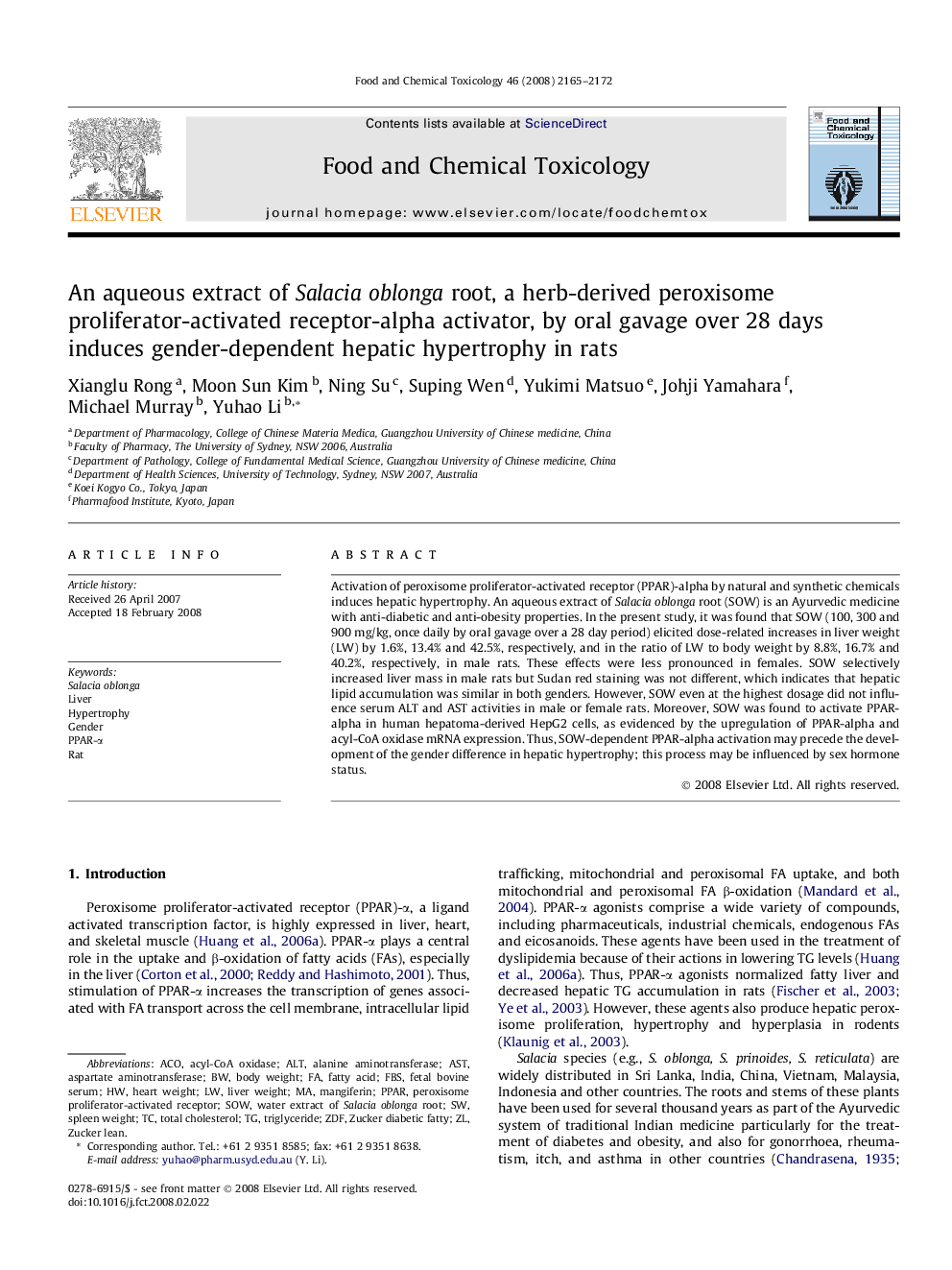| Article ID | Journal | Published Year | Pages | File Type |
|---|---|---|---|---|
| 2586785 | Food and Chemical Toxicology | 2008 | 8 Pages |
Activation of peroxisome proliferator-activated receptor (PPAR)-alpha by natural and synthetic chemicals induces hepatic hypertrophy. An aqueous extract of Salacia oblonga root (SOW) is an Ayurvedic medicine with anti-diabetic and anti-obesity properties. In the present study, it was found that SOW (100, 300 and 900 mg/kg, once daily by oral gavage over a 28 day period) elicited dose-related increases in liver weight (LW) by 1.6%, 13.4% and 42.5%, respectively, and in the ratio of LW to body weight by 8.8%, 16.7% and 40.2%, respectively, in male rats. These effects were less pronounced in females. SOW selectively increased liver mass in male rats but Sudan red staining was not different, which indicates that hepatic lipid accumulation was similar in both genders. However, SOW even at the highest dosage did not influence serum ALT and AST activities in male or female rats. Moreover, SOW was found to activate PPAR-alpha in human hepatoma-derived HepG2 cells, as evidenced by the upregulation of PPAR-alpha and acyl-CoA oxidase mRNA expression. Thus, SOW-dependent PPAR-alpha activation may precede the development of the gender difference in hepatic hypertrophy; this process may be influenced by sex hormone status.
